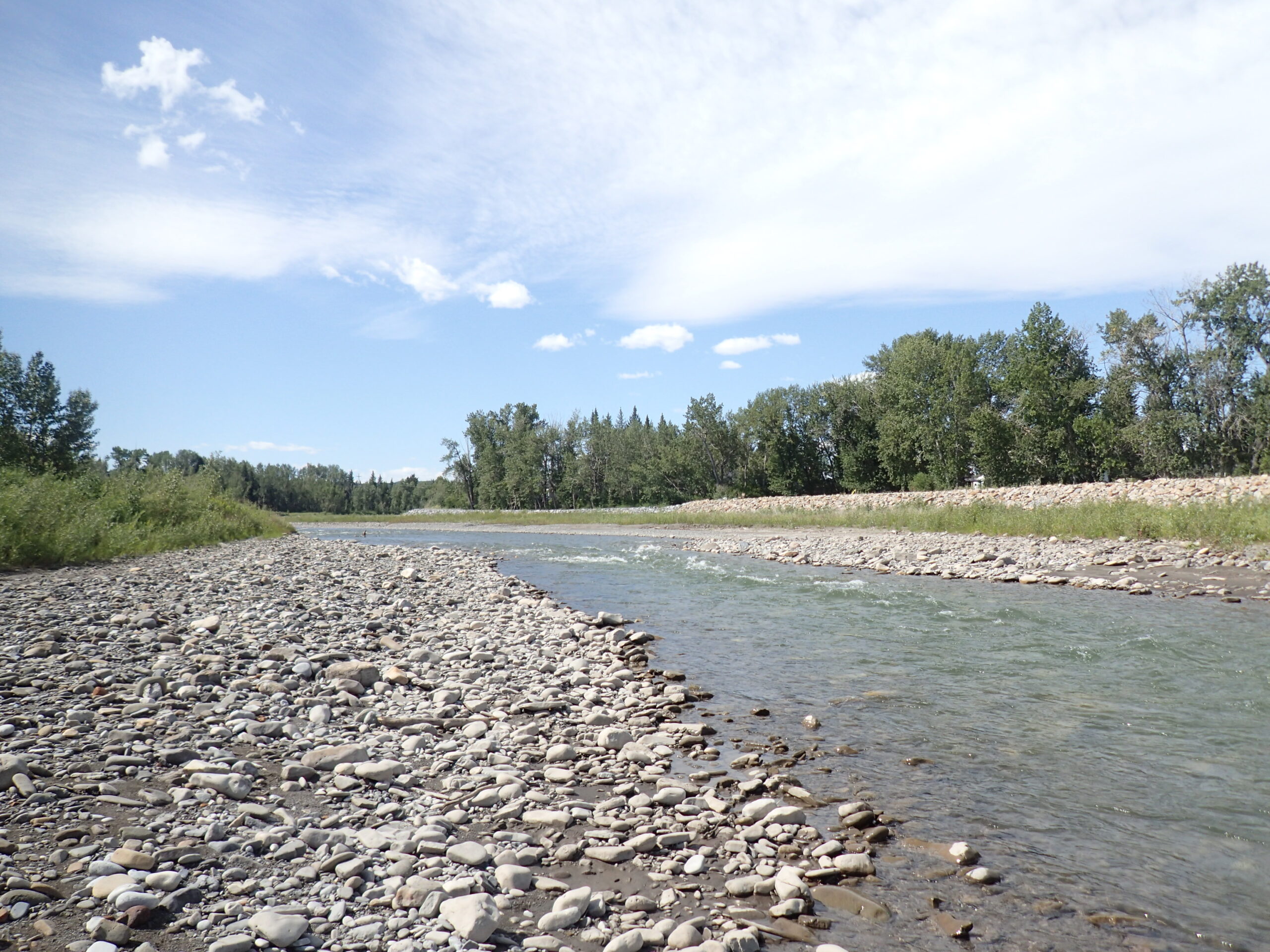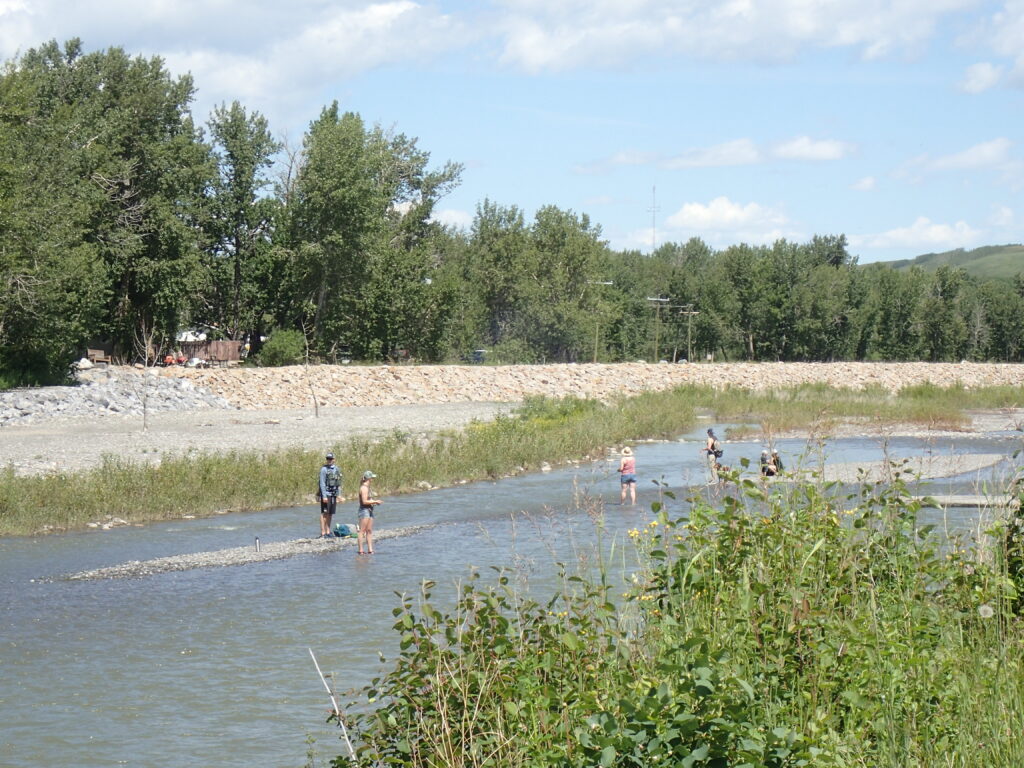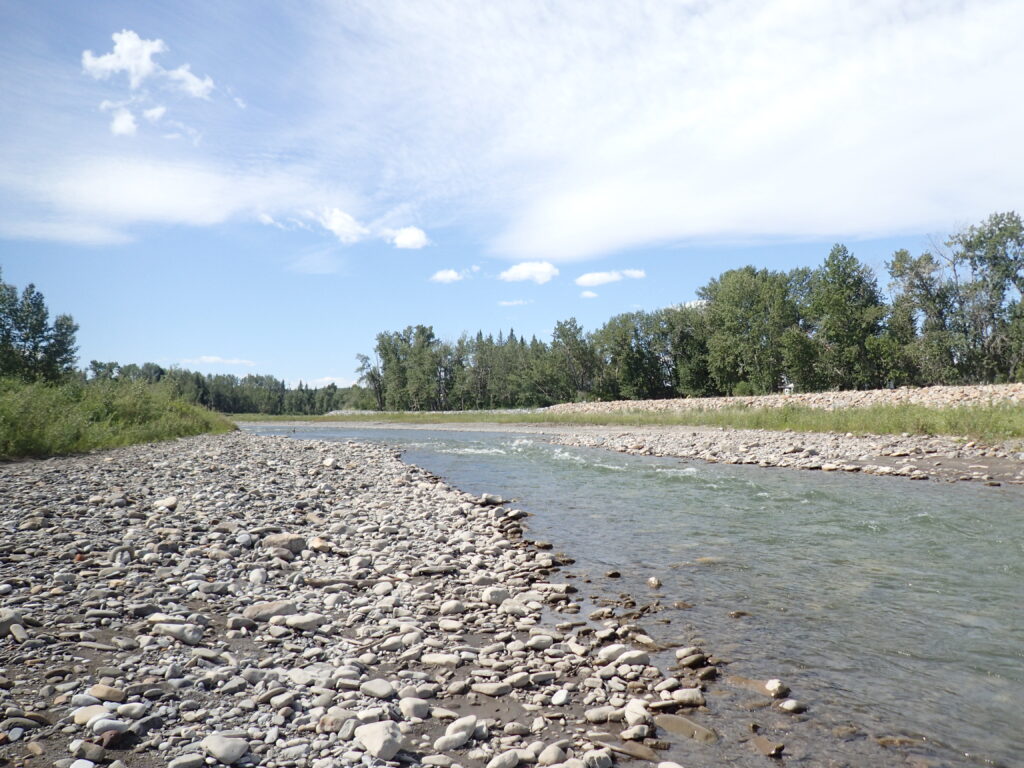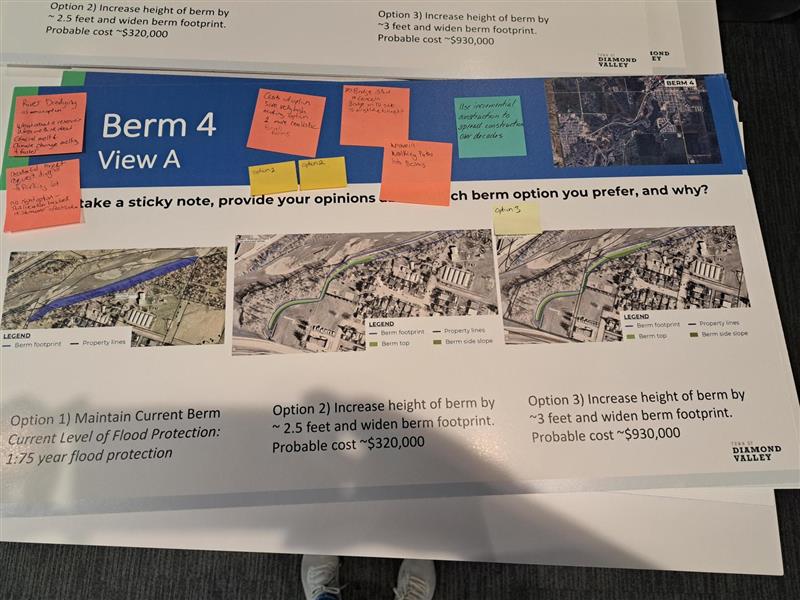Overview
After a decades long amalgamation process, the Towns of Black Diamond and Turner Valley officially formed the Town of Diamond Valley in 2023.
Originating as two separate projects, following the amalgamation the newly established Town of Diamond Valley completed a Flood Protection Level of Service Review.
The Town of Diamond Valley received a combined $154,600 in grant funding for the completion of this project.
Funding for this project was provided in part by the Government of Alberta, through the Municipal Climate Change Action Centre’s Climate Resilience Capacity Building Program.
Approach
The Town of Diamond Valley has a rich historic legacy, vibrant arts and music scene, proximity to outdoor recreation areas, and a reputation as a friendly and safe community in which to raise a family or retire.
Urban Systems supported the Town in reviewing the impact of climate change on flood mitigation berms, identifying risk and cost trade off considerations, and outlining potential adjustments to the existing berms.
The Town’s 2016 Climate Resilience Action Plan identifies flooding as a potential risk resulting in damage to property and infrastructure, potential injuries and fatalities, interruption to business and economic activity, and reduced water quality. The next step was for the Town to consider options to upgrade the flood mitigation infrastructure, including potential upgrades to raise the flood mitigation berms to protect areas of the Town.
The purpose of this project was to better understand the impacts of climate change on current flood mitigation infrastructure, and to outline the risk, service, and cost considerations related to potential infrastructure upgrades.
There were three community engagement opportunities throughout this project to gain the perspectives of different stakeholders on next steps for flood protection in the community. One-on-one meetings were held with the project team and key project stakeholders who would be most impacted by upgrades to the berms to identify opportunities and constraints of the proposed flood mitigation measures.
A community-wide open house was held, which enabled attendees to have their say on the necessary protections for the community in the face of a changing climate. An online survey was also administered to encourage broader participation and input from members of the community.
Results
The project resulted in a technical memorandum which outlines the results of the workshops and stakeholder engagement sessions and the findings of a hydrologic analysis.
The report provides recommendations for next steps, including design criteria, details, cost benefit analysis, and cost estimates for the redesign of flood mitigation berms.
By evaluating the efficacy of current flood mitigation berms and considering future climate projections, the Town gained valuable insights into future projects that can mitigate against flooding.
Actions for the Town to consider include upgrading Town infrastructure, implementing nature-based solutions like green spaces, or revising land use policies to reduce vulnerability to flooding.
Benefits
Through this project the project team was able to grow the public’s understanding of impacts of and protections against flooding in the area.
With the new information from this project, administration and Council are well equipped to make decisions to protect the Town from future flooding events and strengthen the Town’s resilience to the changing climate.
“I’m pleased to announce the successful completion of the Climate Resilience Capacity Building project – the Flood Protection Infrastructure Level of Service Review – thanks to the support of the Municipal Climate Change Action Centre. With the 2013 floods still on residents’ minds, this process created additional awareness in the community about the real impacts of climate change and the importance of understanding and planning for future climate risks to maintain sustainability and safety. With insights from this study, we’re better equipped to proactively plan and implement measures to safeguard our community.”
Barry Crane, Mayor
“The Climate Resilience Capacity Building Flood Protection Infrastructure Level of Service Review has helped the community better understand the impacts of climate change and identify the weaknesses in our flood mitigation strategy. The final report is an invaluable planning tool for improving our infrastructure and preparing for climate change challenges. It helps us to plan and mitigate impacts on our residents while accounting for the financial realities of capital projects. The Town thanks the Municipal Climate Change Action Centre for the financial support and all residents who contributed feedback to the report.”
Brendan Kelly, Deputy Mayor






You must be logged in to post a comment.